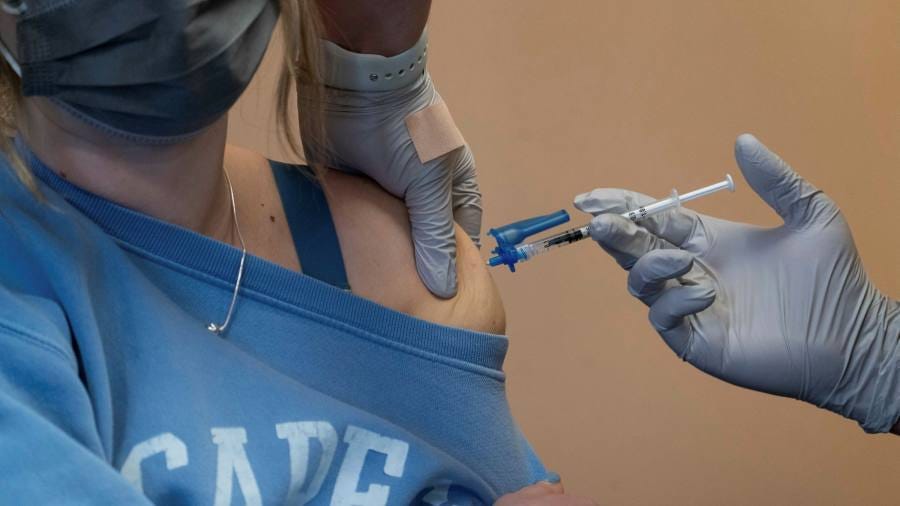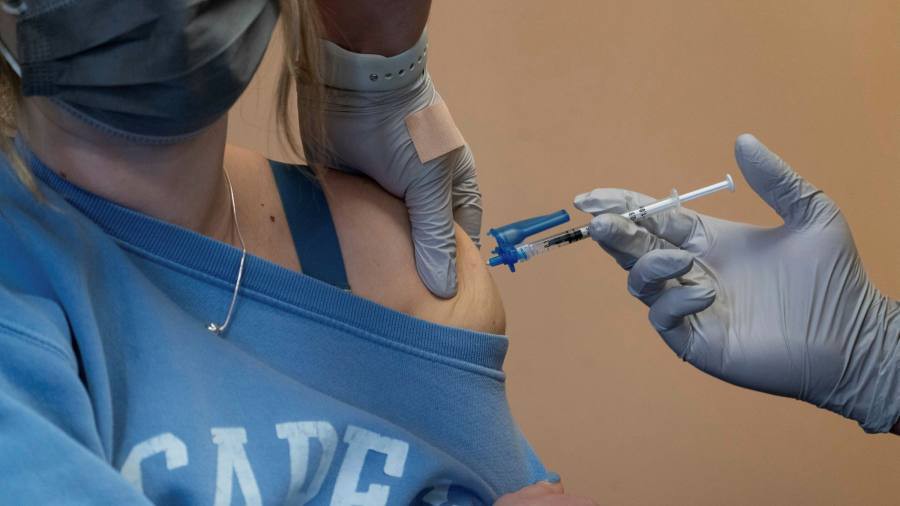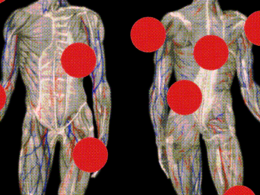Covid-19 may have been displaced in headlines, governments’ priorities and the public consciousness, but out of sight should not mean out of mind.
Financial Times
June 24, 2022
Key messages by
Joaquim Cardoso MSc
The Health Revolution . Foundation
Pandemics Response — Institute
June 25, 2022
Summer is beckoning for many and with it the lure of breaks, possibly abroad, for the first time since the pandemic struck in 2020.
- Surges in hospitalisations in countries including Portugal, the UK and Germany — driven by new sub-variants of the highly infectious Omicron strain — are a nasty reminder of the need for vigilance.
There are sensible ways to do that without resorting to draconian lockdowns.
The first is to retain apparatus set up over the past two years.
- Dismantling data collection and surveillance is a mistake.
- Home testing and reporting of results has already fallen off a cliff in many countries, which means it is likely that far more people have Covid than currently reported.
- It also limits the genomic sequencing that is vital for studying outbreaks and spotting new variants, some of which could mutate to become vaccine-resistant.
The second step is to map out booster campaigns for the autumn, when populations’ immune protection from the last round of jabs will wane just as new variants are predicted to take hold.
- Governments will have to decide whether to restrict boosters to vulnerable groups — the UK has just widened preparations for the booster to be given to those over 50. This tactic is designed to reduce hospitalisations and deaths.
- But proponents of diffuse vaccine rollouts argue that jabs should be given more widely to try to lessen the economic and social damage lockdowns cause.
- Governments could consider liberalising markets somewhat, allowing people outside target groups to pay for boosters, as they do for flu jabs or travel shots.
There is also the question of what vaccine to deploy, with evidence that those developed earlier in the pandemic are less efficient at tackling the spread of Omicron (although they do still confer protection against severe illness).
- Countries’ investment in treatments for Covid should also be sustained, including in antivirals, which lessen the effects for symptomatic patients if taken early on.
- “Two-in-one” campaigns that encourage people to get both their Covid boosters and flu jabs, as Australia is launching, will be key this autumn.
ORIGINAL PUBLICATION (full version)

Summer is beckoning for many and with it the lure of breaks, possibly abroad, for the first time since the pandemic struck in 2020.
While we should enjoy this hard-won return to normality — or something that resembles it — this is no time for complacency: Covid-19 has not gone away.
There is a consensus among doctors and immunologists that autumn could bring more virulent strains on top of seasonal illnesses that may heap pressure on national health systems.
Now is the time for governments around the world, distracted by the cost of living crisis and Russia’s war in Ukraine, to plan their responses.
Surges in hospitalisations in countries including Portugal, the UK and Germany — driven by new sub-variants of the highly infectious Omicron strain — are a nasty reminder of the need for vigilance.
Globally, the number of Covid-related deaths is about a sixth of what it was six months ago but 7,843 people still died last week, including 1,640 in the US.
Disparities in access to vaccines between developed and poorer countries are still glaring, and even within some rich countries.
While it would be foolhardy to announce victory over Covid, or pretend it does not exist, it is also right that we need to learn to live with it.
There are sensible ways to do that without resorting to draconian lockdowns.
The first is to retain apparatus set up over the past two years.
Dismantling data collection and surveillance is a mistake.
Home testing and reporting of results has already fallen off a cliff in many countries, which means it is likely that far more people have Covid than currently reported.
It also limits the genomic sequencing that is vital for studying outbreaks and spotting new variants, some of which could mutate to become vaccine-resistant.
The second step is to map out booster campaigns for the autumn, when populations’ immune protection from the last round of jabs will wane just as new variants are predicted to take hold.
Governments will have to decide whether to restrict boosters to vulnerable groups — the UK has just widened preparations for the booster to be given to those over 50.
This tactic is designed to reduce hospitalisations and deaths.
But proponents of diffuse vaccine rollouts argue that jabs should be given more widely to try to lessen the economic and social damage lockdowns cause.
Governments could consider liberalising markets somewhat, allowing people outside target groups to pay for boosters, as they do for flu jabs or travel shots.
There is also the question of what vaccine to deploy, with evidence that those developed earlier in the pandemic are less efficient at tackling the spread of Omicron (although they do still confer protection against severe illness).
The International Coalition of Medicines Regulatory Authorities is due to vote by the end of the month on whether to allow variant-specific vaccines; the hope is that it will.
Countries’ investment in treatments for Covid should also be sustained, including in antivirals, which lessen the effects for symptomatic patients if taken early on.
Moreover, seasonal flu could be far worse this year — an issue Australia and China are already grappling with — because pandemic restrictions mean people have been less exposed to all kinds of illnesses and are therefore less resilient.
“Two-in-one” campaigns that encourage people to get both their Covid boosters and flu jabs, as Australia is launching, will be key this autumn.
While restrictions can be jettisoned this summer, the hard lessons of the past two years should not be.
Covid-19 may have been displaced in headlines, governments’ priorities and the public consciousness, but out of sight should not mean out of mind.
Originally published at https://www.ft.com












